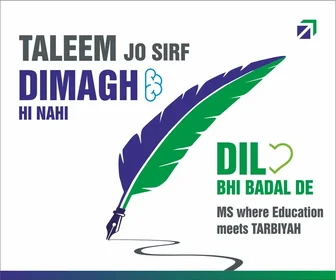
Bhopal: Tamil Nadu Chief Minister M.K. Stalin has assured a delegation of All India Muslim Personal Law Board (AIMPLB), that he and his party would continue to stand with the Muslim community and work to safeguard their constitutional rights.
The delegation from AIMPLB led by its General Secretary Maulana Fazlur Rahim Mujaddidi, met with Tamil Nadu Chief Minister M.K. Stalin to discuss the Board’s concerns regarding the recently tabled Waqf (Amendment) Bill in Parliament.
The delegation included prominent figures such as Prof. M.H. Jawahirullah, MLA and President of Manithaneya Makkal Katchi; Tamil Nadu Jamaat Ulama Sabha President Maulana P.A. Khoja Mohinudeen Baqavi; Prof. P. Nasrullah Basha; Mr. H. Abdur Raqeeb of Jamaat-e-Islami Hind; and Mrs. Fatima Muzaffar MC.
In a statement, the AIMPLB said it expressed gratitude to the Chief Minister for his party’s strong opposition to the Waqf (Amendment) Bill during the recent Lok Sabha session. Their efforts contributed to the Bill being sent to a Joint Parliamentary Committee (JPC), for further scrutiny. The delegation urged Tamil Nadu Chief Minister Stalin to instruct his party’s MP, who is a member of the JPC, to continue opposing the Bill during the committee’s deliberations.
In addition to the Waqf Bill, the delegation voiced their opposition to the Prime Minister’s recent remarks on the Uniform Civil Code (UCC) during his Independence Day speech at the Red Fort on August 15. They also raised concerns about the recently passed Bill in the Uttarakhand Assembly, which was swiftly granted assent by the President. The AIMPLB warned that this law, which they see as targeting Muslims and violating fundamental rights, could be used by dominant forces to undermine the constitutional rights of citizens. The Board emphasized that the Muslim Personal Law, grounded in Shariah, cannot be replaced by any secular law.
The delegation pointed out that the legislature of the country itself has approved the Shariat Application Act, 1937, and the Constitution of India has declared it a fundamental right under Article 25 to profess, propagate and practice religion, it said.
The family laws of other communities are also based on their own religious and ancient traditions and tampering with them is basically a negation of religion and an imitation of the West.
The uniform civil code mentioned in the Directive Principles is a mere direction and all the directives are neither mandatory nor enforceable in courts. These Directive Principles cannot supersede the fundamental rights enshrined in the Constitution.
The Board has criticised the prime minister’s use of secular civil code instead of the constitutional word uniform civil code, claiming that it was “misleading” Uniform means it will be applicable to the whole country and to all religious and non-religious people. There will be no room in it to exclude any class or caste or even tribals.
Meanwhile, Chief Minister Stalin attentively listened to the delegation’s concerns. Regarding the UCC, he informed them that in 2023, he had already communicated his opposition to the Prime Minister and the Chairman of the Law Commission.

